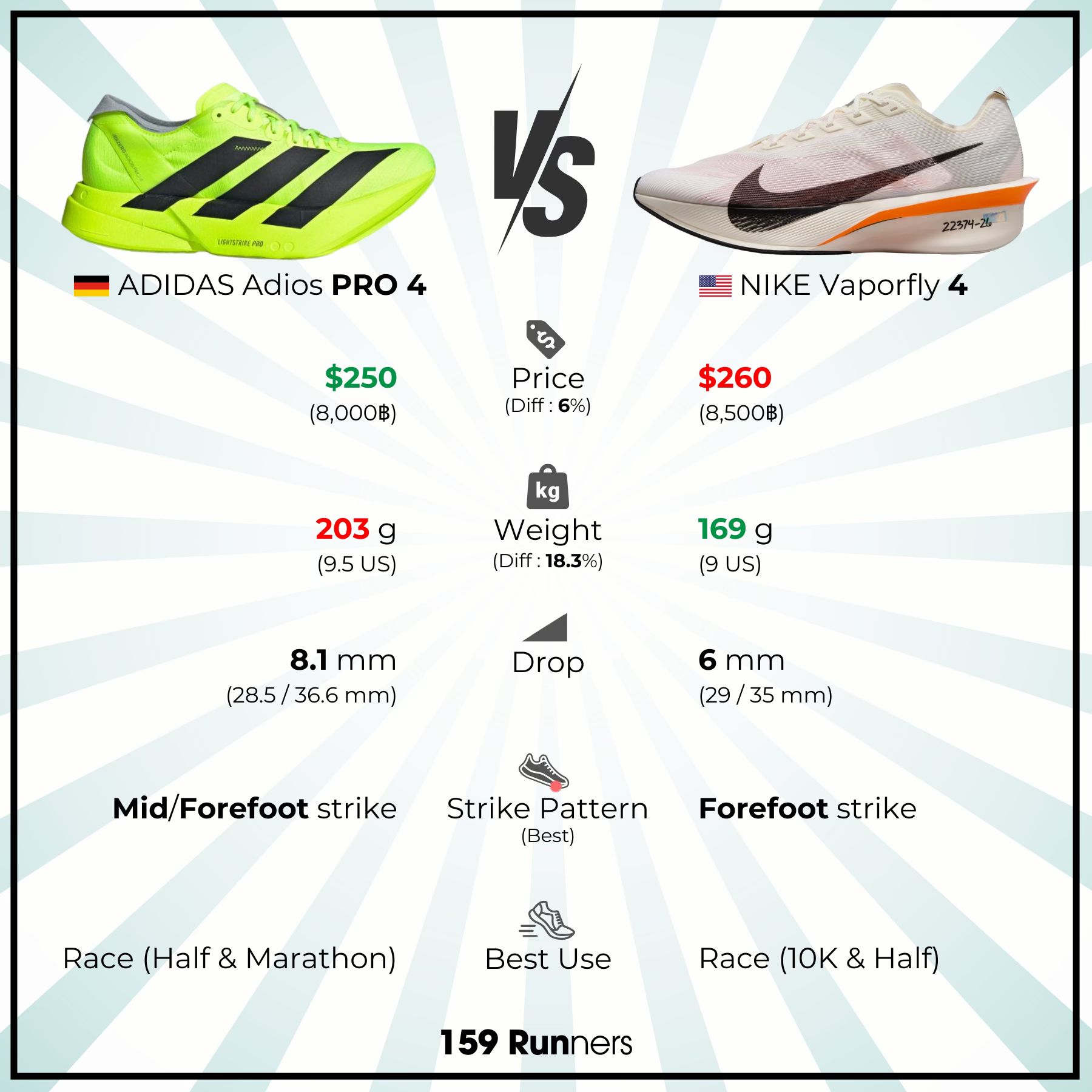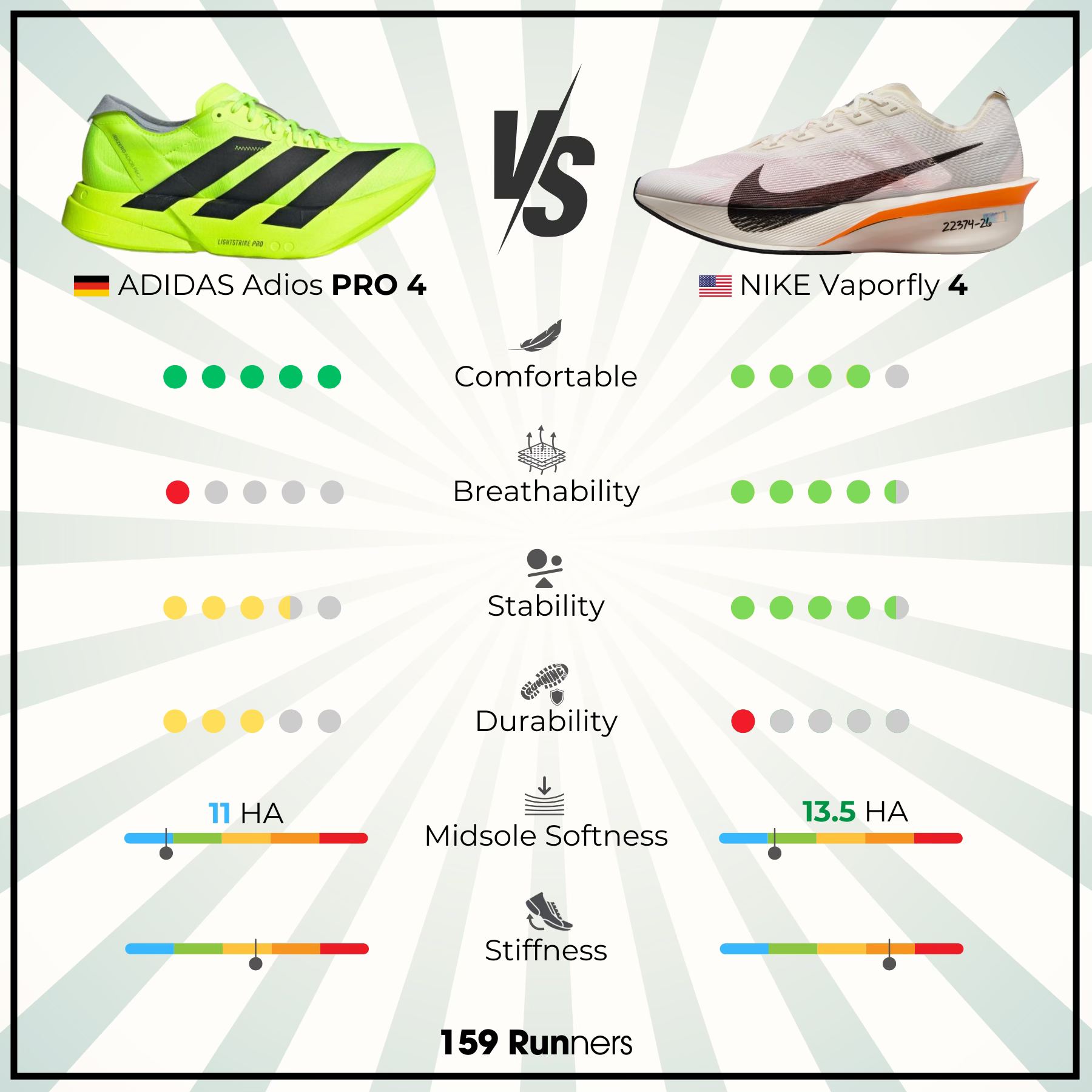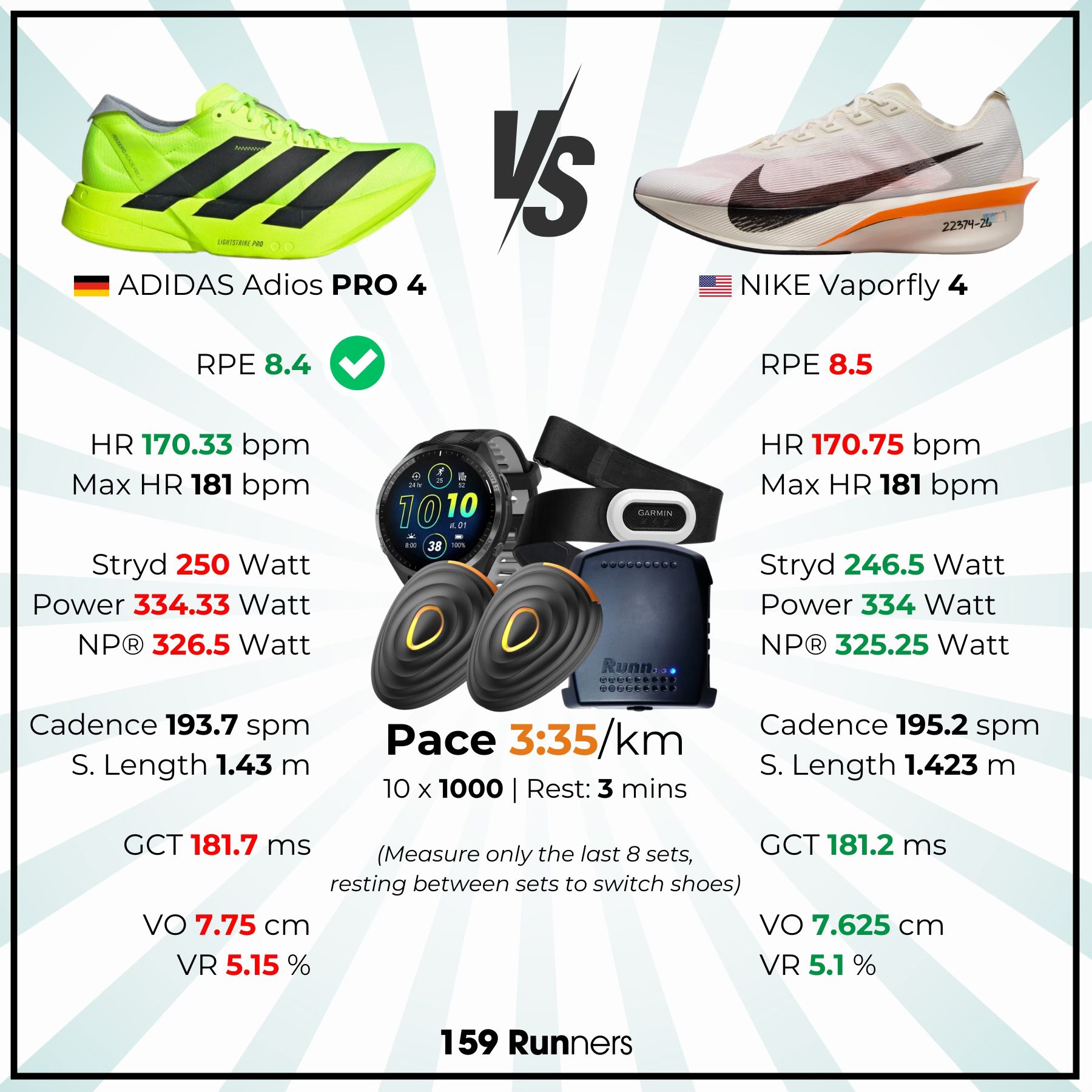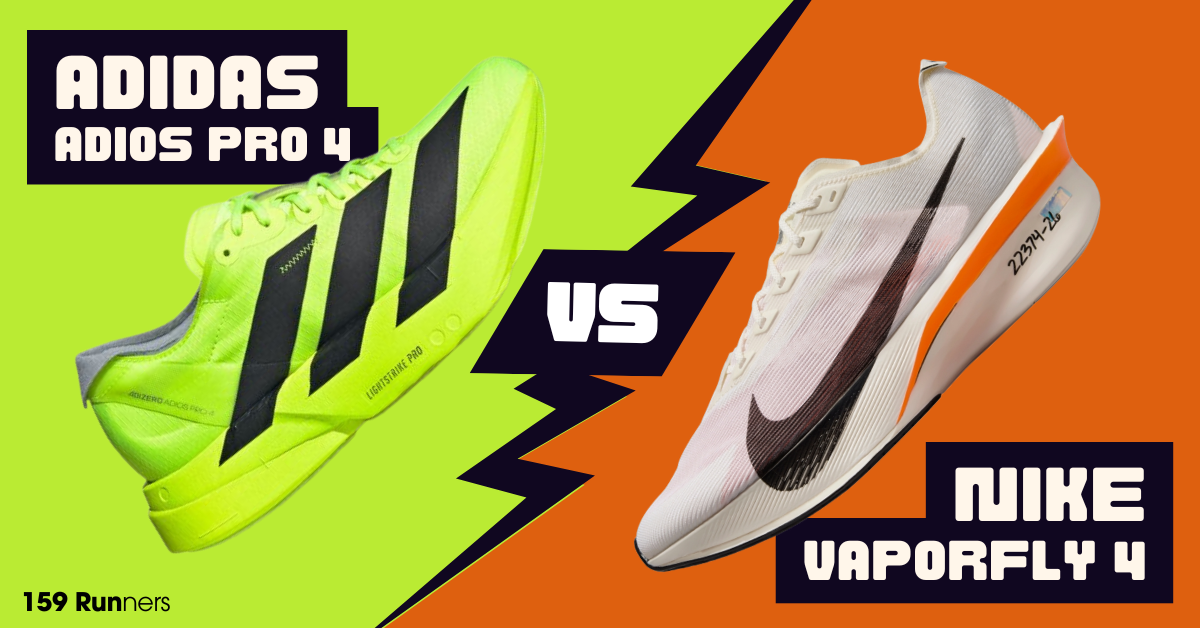To be honest, I didn’t plan on doing a serious side-by-side shoe test this time (just one hard session, one pace, and done). But I had a 1000m interval workout (3 min rest between sets) on my calendar that I had to crush, and I’d already reviewed both shoes—but still haven’t sold either pair 😓 So I thought, “Why not do a fun little comparison while I’m at it?”
I’ve always been curious—between these two global giants, which one really brings the heat? Which brand is truly faster? It might help others decide whether to go with the American or European flagship. A lot of us are still racing in the big-name brands (myself included) and not quite ready to jump on the Chinese shoe train.

ADIDAS Adios PRO 4 vs NIKE Vaporfly 4
Going into it, I fully expected NIKE to dominate in every metric. But surprisingly, that wasn’t quite the case—just a little off from what I thought. Sure, the VF4 edges out in dynamics and overall running economy (see the data charts for more), but today’s post is all about feel—I’ll skip the deep specs, which I’ve already broken down in other reviews.
That said, the VF4 gives you that snappy, road-connected ground feel. For short and fast races, like a 5K, I’d still lean toward the Vaporfly. But for a half or full marathon? I’m picking the PRO 4, even if the upper barely breathes.
Now for the 10K… it’s a tough call. Both are legit. Either pair would work. But if I had to buy just one? I’d go PRO 4—it just feels more complete. 😬

Overall Test
- VF4 showed better numbers for running economy. likely thanks to the lighter weight.
- But PRO 4 used 3.5 watts less power on average (Stryd data)
- Heart rate was practically identical: PRO 4 averaged 170.33 bpm vs. VF4’s 170.75 bpm. So, no major difference there.

⭕️ If you’re going purely by the science, you might quickly say, “Yep, VF4 wins.” ⁉️
But… how it feels to run in them? That’s where things shift. I felt less fatigue in the PRO 4. I could’ve kept going after the final reps, while the VF4 left me more drained by the end. Legs felt more taxed in the Vaporfly during the last few sets.
That aligns with the slightly lower HR in the PRO 4. The difference isn’t huge—RPE was about 8.3–8.4 vs. 8.5—but it was noticeable.
My rough theory is this: the PRO 4 just delivers more bounce and energy return. VF4 might have the edge in mechanical design and weight, but that bounce? PRO 4 takes it, hands down.
Test Setup
- Treadmill run for controlled speed, temp, and humidity
- April 4: 1000m (3:35/km pace) x10 sets, 3-min rest
- Only the last 10 intervals used for data (excluded first two for HR stabilization)
- Shoes swapped between sets: A, N, A, N, A, N, A, N, N, A (“A” = Adios PRO 4, “N” = Vaporfly 4)
- Gear used:
- Garmin FR965 & HRM Pro+: HR avg/max, average power, NP®, VO (vertical oscillation), VR (stride length to VO ratio)
- Runn Smart Treadmill Sensor: Replaces wrist/foot pod pace data with accurate belt speed
- Stryd Duo (Next Gen): Power, cadence, stride length, ground contact time, running form analysis
- RPE (Rate of Perceived Exertion): Main marker for comparing feel and efficiency between sets—especially when fatigue builds late in the workout
👉 Again, this is just my personal test. Others might have different results. Take this as a guide, not gospel. And both shoes? Fantastic performance all around. 🫰 In terms of efficiency, they’re neck and neck—though I give the slight edge to the PRO 4.
And hey, if you already love a brand—stick with it. No need to switch. Simple as that.

